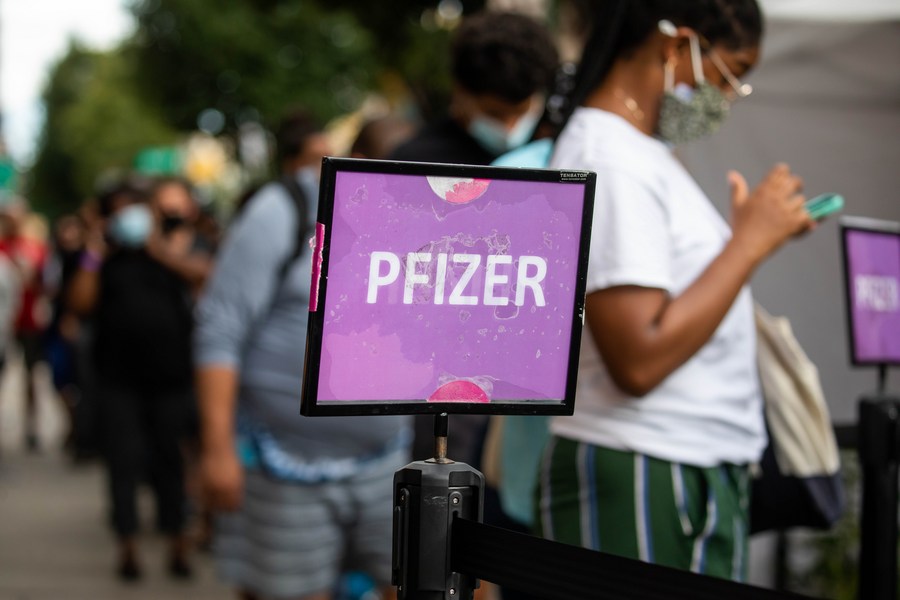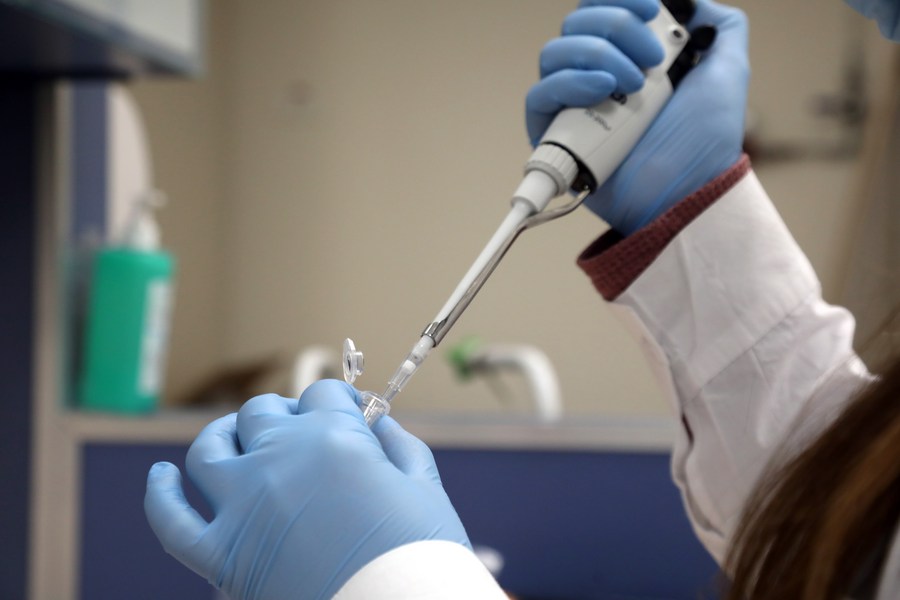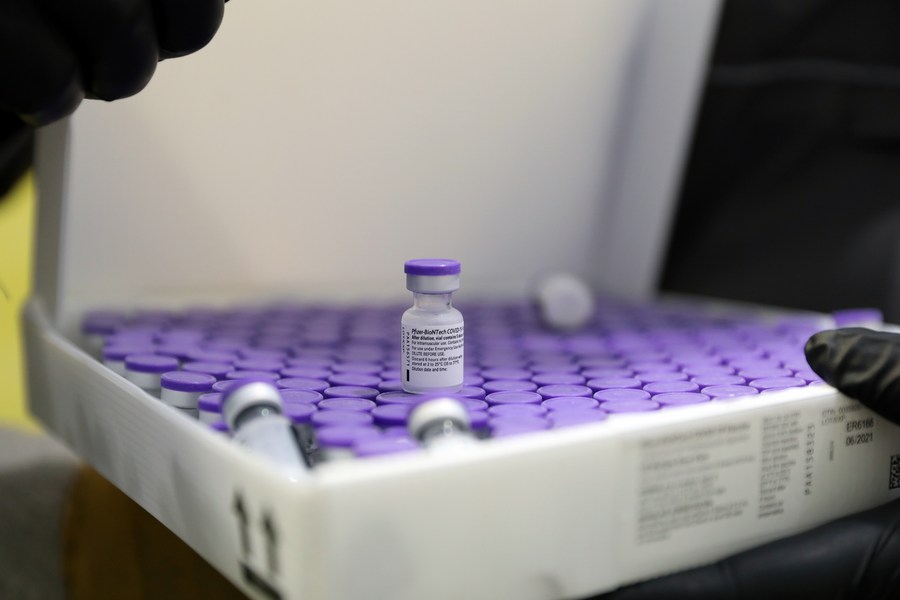Three doses of Pfizer/BioNTech vaccine can fight off Omicron: statement

People wait in line to receive the Pfizer/BioNTech COVID-19 vaccine at a mobile vaccine clinic in the Brooklyn borough of New York, United States, Aug. 23, 2021. (Xinhua/Michael Nagle)
Laboratory data indicate that a third dose of the Pfizer/BioNTech COVID-19 Vaccine increases the neutralizing antibody titers by 25-fold compared to two doses against the Omicron variant. Therefore, two doses of the vaccine "may not be sufficient to protect against infection with the Omicron variant."
BERLIN, Dec. 8 (Xinhua) -- Preliminary laboratory studies demonstrate that three doses of the Pfizer/BioNTech COVID-19 Vaccine neutralize the Omicron variant while two doses show significantly reduced neutralization titers, the American and German vaccine developers said in a joint statement on Wednesday.
"Broad vaccination and booster campaigns around the world could help us to better protect people everywhere and to get through the winter season," said Ugur Sahin, CEO and co-founder of BioNTech.
Laboratory data indicate that a third dose of the vaccine increases the neutralizing antibody titers by 25-fold compared to two doses against the Omicron variant, the companies said. Therefore, two doses of the vaccine "may not be sufficient to protect against infection with the Omicron variant," they noted.

A medical worker tests samples in order to detect the new coronavirus variant Omicron in a laboratory in Shamir Medical Center near Tel Aviv, Israel, on Dec. 1, 2021. (Gideon Markowicz/JINI via Xinhua)
However, because most epitopes targeted by vaccine-induced T cells were not affected by the Omicron mutations, the companies believed that "vaccinated individuals may still be protected against severe forms of the disease."
The two companies have already started adapting their vaccine to the Omicron variant and would continue this work. The vaccine could be ready by March.
Pfizer and BioNTech are planning to produce four billion doses of the current (BNT162b2) vaccine in 2022, and "this capacity is not expected to change if an adapted vaccine is required."
Blood sera for the study were taken three weeks after people receiving the second dose or one month after receiving the third Pfizer/BioNTech COVID-19 vaccine dose.

Vials of the Pfizer-BioNTech vaccine are seen in Ankara, Turkey, on March 31, 2021. (Xinhua/Mustafa Kaya)
Photos
Related Stories
- Tougher testing rules take effect for U.S. entry as Omicron poses new challenges
- Japan PM Kishida vows to "prepare for worst" for Omicron variant in policy speech
- Omicron found in more U.S. states, adds new uncertainties
- Delta continues to drive U.S. COVID-19 cases as Omicron found in more states
- Biden unveils new measures against COVID-19 as U.S. confirms 2nd Omicron case
Copyright © 2021 People's Daily Online. All Rights Reserved.










